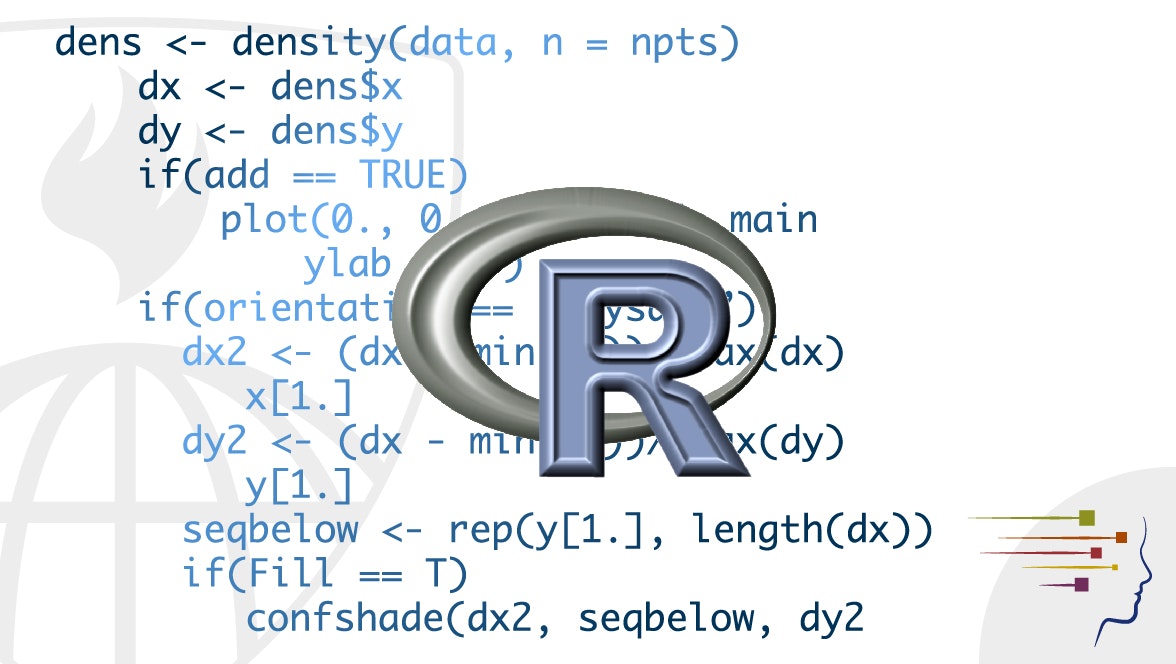
이 과정에서는 R로 프로그래밍하는 방법과 효과적인 데이터 분석을 위해 R을 사용하는 방법을 배웁니다. 통계 프로그래밍 환경에 필요한 소프트웨어를 설치 및 구성하는 방법과 고급 통계 언어로 구현되는 일반적인 프로그래밍 언어 개념을 설명합니다. 이 과정은 R 프로그래밍, R로 데이터 읽기, R 패키지 액세스, R 함수 작성, 디버깅, R 코드 프로파일링, R 코드 구성 및 주석 달기를 포함하는 통계 컴퓨팅의 실제 문제를 다룹니다. 통계 데이터 분석의 주제는 실제 사례를 제공합니다.
What's inside
Syllabus
1주차: 배경, 시작하기, 너트와 볼트
이번 주에는 R을 시작하는 데 필요한 기본 사항을 다룹니다. 배경 자료 강의에는 과정 역학에 대한 정보와 R 설치에 대한 일부 비디오가 포함되어 있습니다. 1주차 비디오에서는 R 및 S의 역사를 다루고 R의 기본 데이터 유형을 살펴보고, 데이터를 읽고 쓰는 기능을 설명합니다. 나열된 순서대로 비디오를 시청하는 것이 좋지만 순서대로 시청하지 않아도 스토리라인이 끊기지는 않습니다.
Read more
Syllabus
Good to know
Save this course
Activities
연습문제 풀기
Show steps
R 프로그래밍 기본 사항 연습을 통해 숙련도 향상.
Show steps
-
제공된 연습문제 수집
-
문제 풀기
-
답안 확인 및 개선 사항 파악
간단한 R 프로젝트 시작하기
Show steps
실제 프로젝트를 수행하여 R 프로그래밍 기술 적용 및 심화.
Show steps
-
작은 규모의 실습 프로젝트 계획
-
데이터 수집 및 준비
-
R을 사용하여 데이터 분석 및 시각화
-
프로젝트 결과 보고서 작성
Show all two activities
연습문제 풀기
Show steps
R 프로그래밍 기본 사항 연습을 통해 숙련도 향상.
Show steps
- 제공된 연습문제 수집
- 문제 풀기
- 답안 확인 및 개선 사항 파악
간단한 R 프로젝트 시작하기
Show steps
실제 프로젝트를 수행하여 R 프로그래밍 기술 적용 및 심화.
Show steps
- 작은 규모의 실습 프로젝트 계획
- 데이터 수집 및 준비
- R을 사용하여 데이터 분석 및 시각화
- 프로젝트 결과 보고서 작성
Career center
Statistician
Data Scientist
Data Analyst
Machine Learning Engineer
Data Engineer
Biostatistician
Actuary
Public Health Analyst
Operations Research Analyst
Quantitative Analyst
Economist
Financial Analyst
Market Researcher
Epidemiologist
Software Engineer
Reading list
Share
Similar courses
OpenCourser helps millions of learners each year. People visit us to learn workspace skills, ace their exams, and nurture their curiosity.
Our extensive catalog contains over 50,000 courses and twice as many books. Browse by search, by topic, or even by career interests. We'll match you to the right resources quickly.
Find this site helpful? Tell a friend about us.
We're supported by our community of learners. When you purchase or subscribe to courses and programs or purchase books, we may earn a commission from our partners.
Your purchases help us maintain our catalog and keep our servers humming without ads.
Thank you for supporting OpenCourser.



